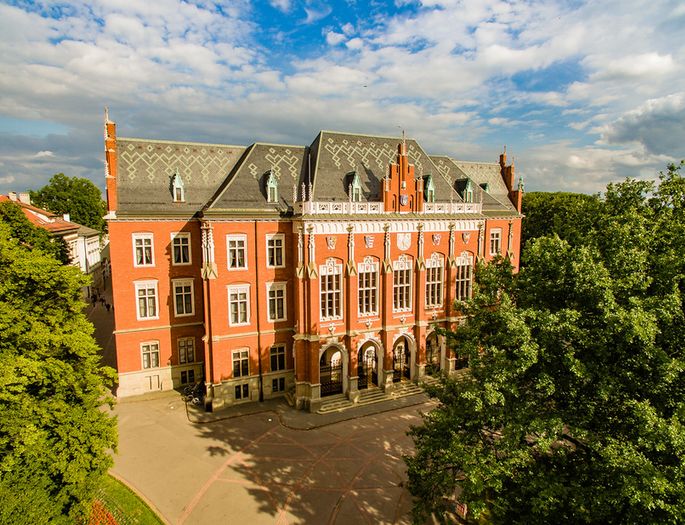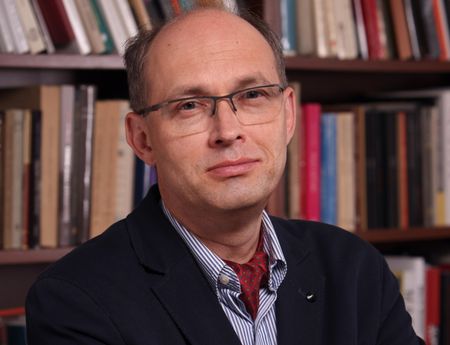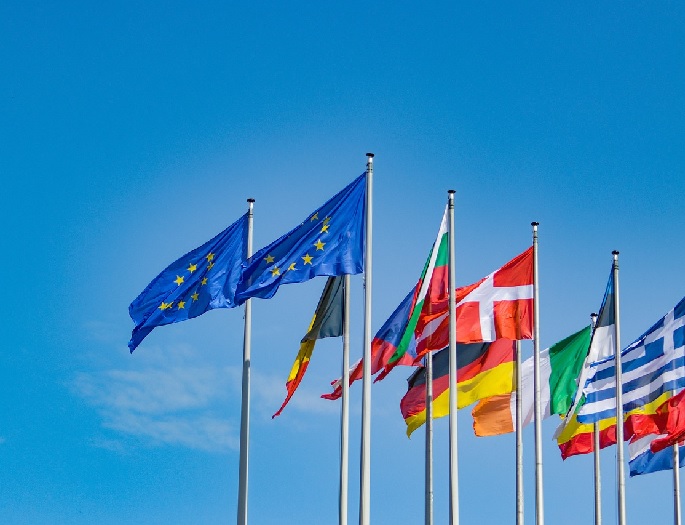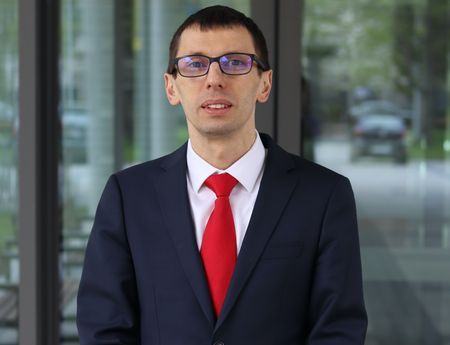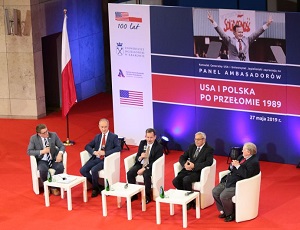
Polish and American perspectives on post-1989 bilateral relations – this was the main subject of the debate hosted on 27 May at the JU Auditorium Maximum. The Ambassadors’ Panel was an event organised jointly by the US Consulate General in Kraków and the Jagiellonian University.
As an introduction, the meeting’s moderator journalist Jacek Stawiski asked the panellists to share their memories about the discussed period. Stephen Mull recalled that, as a young diplomat, he was sent by the US government to realistically assess the probability of the democratisation of Poland. Although he was received rather coldly by the communist authorities, he believed the transformations would take place, though he did not expect it would happen in such a short time. Janusz Reiter mentioned that the political circles opposed to communism frequently speculated about the possible ways of breaking away from the Eastern Bloc and establishing relations with the West, but most believed that it would be Germany, not Poland, that would become the catalyst of this process. Victor Ashe remarked that although at the time he served as the Mayor of Knoxville, Tennessee, he carefully observed the political situation in Europe, and that Lech Wałęsa’s historical speech in the US Congress heralded the arrival of a whole new reality, in which Poland would be a strong ally of the United States. Lastly, Maciej Kozłowski talked about his visit in the USA in the mid-1980s, where he witnessed overwhelming support for Poland after the introduction of martial law by Wojciech Jaruzelski, with Ronald Reagan symbolically lighting a candle in the window of the White House.
Later in the discussion, the panellists commented on key issues related to Polish-American relations (and, more broadly, European-American relations) both in historical and contemporary context. They praised well-thought-out diplomatic actions, particularly those initiated by the then-president George H. W. Bush, who made his name as a very experienced and well prepared politician. By allying with the US, Poland gained a strong partner that ensured its security and financial stability. Partial debt forgiveness allowed for carrying out an economic reform proposed by Leszek Balcerowicz. The participants also stressed that Poland has always strived to become a part of the West, and was given that opportunity when it joined NATO. It was pointed out that although many people today choose not to remember it, it was in fact the United States that played a major part in the integration of Europe, and therefore it is as important as ever to tirelessly continue to make sure that these two regions remain in a good and stable relationship. According to the diplomats, the Unites States will only be secure in a safe, democratic world with no chaos, and one of the foundations of that world is a strong Poland in a united Europe.
Victor H. Ashe of Tennessee was Ambassador to Poland from July 22, 2004 to September 26, 2009. He was born in 1945 and has a distinguished career in public service. Previously, he served for 16 years as the Mayor of Knoxville, Tennessee from 1988 to 2003 and 15 years in the Tennessee House and Senate from 1968 to 1984. In January 2003, he received the Distinguished Public Service Award of the US Conference of Mayors. Ambassador Ashe served four years on the National Service Corporation Board appointed by President Clinton and on the Advisory Commission on Intergovernmental Relations by appointment of both Presidents Bush and Reagan. During his time as Ambassador to Poland, he visited all 16 provinces of Poland and over 185 Polish cities and towns.
Stephen D. Mull is Vice-Provost for Global Affairs at the University of Virginia since 1 August 2018. In his 36 years of Foreign Service Mull has served in a broad range of U.S. national security positions. He was confirmed as US Ambassador to the Republic of Poland from 2012 to 2015. Earlier he served as Executive Secretary of the State Department from 21 June 2010 until 5 October 2012. Before then, he had served since August 2008 as Senior Advisor to Under Secretary of State for Political Affairs William Burns, in which capacity he coordinated U.S. diplomatic efforts on Iran, managed the State Department’s crisis response during the Russian-Georgian war of August 2008, and led negotiations on a range of US national security issues. He is the recipient of two Presidential Meritorious Service Awards, the Baker-Wilkins Award for Outstanding Deputy Chief of Mission, the Director General’s Award for Reporting, two Superior Honor Awards, two Distinguished Honor Awards, and more than ten Senior Foreign Service performance awards.
Janusz Reiter was born in 1952. He graduated in German Studies from the University of Warsaw. In 1980, he became a Solidarity activist. During communist rule in Poland, he was the editor of certain opposition magazines, among others, 'Solidarność Narodu'. In 1989, he worked at 'Polityka Polska', and later, until 1990, at 'Gazeta Wyborcza' and Telewizja Polska. Between the years 1990–1995, he served as the Polish Ambassador to the Federal Republic of Germany. In 1996, he founded the Centre for International Relations (CIR), an independent think tank focused on foreign and security policies. In 2005, he became the Polish Ambassador to the United States, and in 2008 – a Special Emissary in regard of the climate changes. In this capacity, he participated in the preparations for climate changes conferences in Poznań and Copenhagen. He received many awards and prizes: the Order of Merit of the Federal Republic of Germany, the Viadrina European University award and an honorary title of the College of the Atlantic in the USA.
Maciej Kozłowski was born in 1943. He is a historian and diplomat. After graduating from the Jagiellonian University, he spent a year in London and Paris where he started the collaboration with the émigré monthly Kultura. He was an active member of the anti-communist opposition, suffering reprisals. In the 1980s, he started working as a journalist and editor at Tygodnik Powszechny. After the democratic transformations, he started a diplomatic career, first as the Deputy Ambassador in Washington, and then as Chargé d'Affaires. He was the Polish Ambassador to Israel (1999–2003), and later, the Deputy Director of the Department of Africa and the Middle East in the Ministry of Foreign Affairs and Minister Plenipotentiary for the Polish-Jewish Relations. He delivered lectures at various universities in the US, Europe and Israel. He is a professor at Collegium Civitas in Warsaw. He collaborates with the Polish NGO Forum for Dialogue and edited a book published by the Forum, entitled Difficult questions in the Polish-Jewish Dialogue.






























